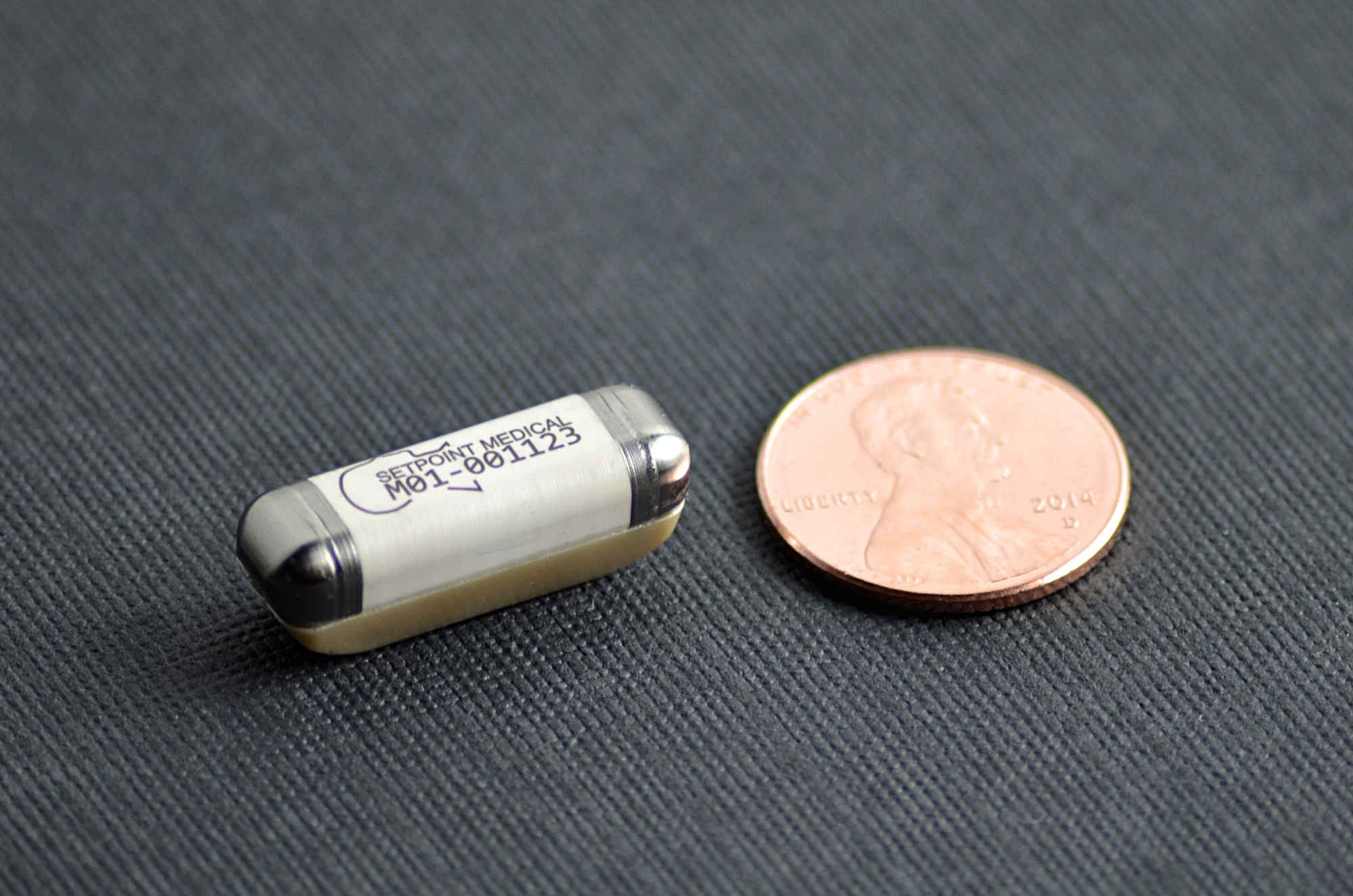SetPoint Medical announced that it has launched a pilot trial for patients with drug refractory rheumatoid arthritis (RA) in the U.S. The multi-center study, “A Randomized Controlled Study of the Safety and Efficacy of Neurostimulation Using a Vagus Nerve Stimulation Device in Patients with Rheumatoid Arthritis,” assesses the safety and efficacy of SetPoint’s proprietary bioelectronic device in adult patients with RA who are not adequately responsive to multiple biologic agents.

“Despite the effectiveness of biologic and targeted agents for the treatment of rheumatoid arthritis, many patients either do not respond, lose therapeutic response or are intolerant to these agents,” said Mark C. Genovese, MD, principal investigator and the James W. Raitt Professor of Medicine and Director of the Rheumatology Clinic in the Division of Immunology and Rheumatology at Stanford University Medical Center. “There remains a real need to develop alternative therapeutic approaches for the treatment of patients with drug refractory disease. Bioelectronic medicine represents a novel and promising approach for patients who need other options for treatment of their rheumatoid arthritis.”
In the study, SetPoint’s proprietary bioelectronic device is surgically placed on the vagus nerve to deliver electrical doses on a preset schedule to evaluate safety and tolerability.
“I have conducted more than 100 clinical trials, and it is incredibly exciting to be the first center in the U.S. to enroll a subject in this trial of SetPoint Medical’s bioelectronic modulation system for the treatment of patients with rheumatoid arthritis who have had inadequate responses to multiple treatments,” said Norman Gaylis, MD, MACR, FACP, nationally recognized rheumatologist and CEO of clinical research organization AARDS Research, Inc. “The opportunity to try a completely different therapeutic approach for my RA patients will hopefully lead to another treatment option for this very debilitating disease.”
SetPoint received Investigational Device Exemption (IDE) approval from the U.S. Food & Drug Administration (FDA) to initiate the trial just over two months ago.
“The new implantable device designed by SetPoint Medical is an exciting development in RA therapy. It is extremely easy to place, with no external battery or wires that need to be connected, and it can even be removed if needed. All of these things make it an ideal potential new option for drug refractory rheumatoid arthritis,” said Heather Spader, MD, Director, Pediatric Neurosurgery Research, Joe DiMaggio Children’s Hospital.
A total of 15 subjects, aged 22 to 75, will be enrolled across seven U.S. investigational centers.
“We are recruiting patients to evaluate SetPoint’s proprietary miniaturized, rechargeable wireless bioelectronic device for RA, building on our body of previous work defining the mechanism of action and proof of concept,” said David Chernoff, MD, Chief Medical Officer of SetPoint Medical. “This is important because despite the availability of oral disease-modifying drugs such as methotrexate and multiple targeted biologic agents, only one third of RA patients on current therapies meet criteria for clinical remission.”
SetPoint previously published results from a proof-of-concept study for rheumatoid arthritis in Proceedings of the National Academy of Sciences (PNAS). Of 17 patients with active RA in the study, which used a modified commercial neuromodulation device, 11 of 17 patients saw a clinically meaningful drop in their DAS28 (Disease Activity Score) and five of the seven patients that had failed to respond to multiple biologic agents of differing mechanisms, demonstrated robust DAS28 responses. The findings indicate that active electrical stimulation of the vagus nerve inhibits TNF production in RA patients and significantly attenuates RA disease severity. In addition, no serious adverse side effects were reported.
SetPoint is developing a novel proprietary bioelectronic medicine platform that targets the body’s natural Inflammatory Reflex in order to activate systemic anti-inflammatory pathways. The emerging field of bioelectronic medicine aims to address unmet patient needs by delivering targeted digital doses to modulate physiological circuits for treatment of diseases historically treated with drugs.
Rheumatoid arthritis is a chronic inflammatory disease that affects 1.6 million people in the United States.

